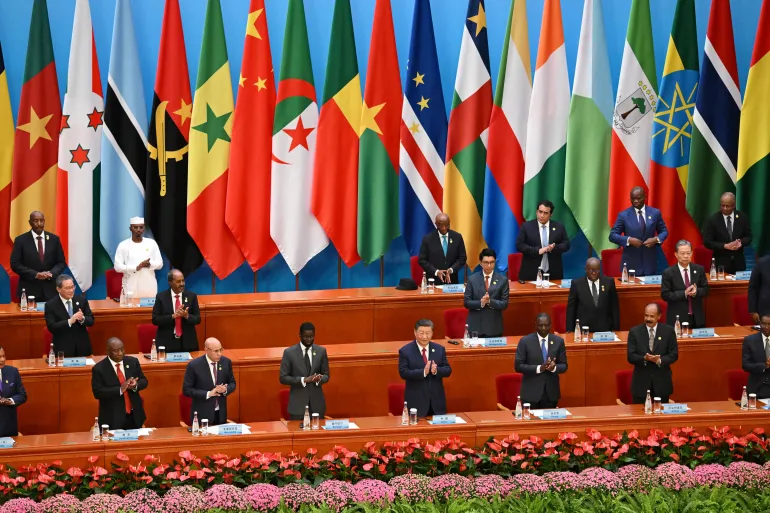China has announced a game-changing economic policy for African countries.
The Zero-Tariff policy grants duty-free access to all African countries that China engages in bilateral trade relations with, including Nigeria but excluding Eswatini.
As of 2023, African exports to Asia were estimated to be worth about $170 billion. In Nigeria alone, reports from 2023 reveal that China’s imports from here were worth over N1.61 billion.
The measure was announced at a joint China-Africa meeting held in Beijing, in cooperation with the Forum on China-Africa Cooperation (FOCAC).
In a letter addressed Africa’s ministers on foreign relations, the President of China, Xi Jinping stated that the country is to “provide more convenience for the least developed countries in Africa to export to China”.
The letter also includes details of a series of measures which will be made. First, China stands ready to expand the zero-tariff treatment for 100 per cent tariff lines to all 53 African countries with diplomatic relations, through the entry into agreements on economic partnership for shared development”.
Furthermore, in its commitment, China has pledged to expand its preferential zero-tariff treatment to cover all tariff lines. This means that African Least Developed Countries (LDCs) will gain even broader access to the Chinese market, creating new opportunities for their exports to flourish.
Beyond trade, China has also expressed its readiness to collaborate more deeply with African nations under the framework of the ‘Ten Partnership Actions’. These partnerships will focus on key growth areas such as green industries, digital commerce, and modern payment systems.
This move by China, which is Africa’s largest trading partner, is strategic attempt to deepen trade ties with the continent and compete better as the second-largest economy in the world. The decision coincides with the United States’ recent tariff increase on imports from Africa, with as much as 14% on Nigeria goods.
The United States’ recent policies are considered to be a disruption for the global economic and trade order. Therefore, the joint coalition is expected to aid the general interests of the international community.
The Zero-Tarriff policy is not China’s first attempt to offer preferential trade relations to countries in Africa. The country granted up to duty free access for up to 98% of goods exported from countries like Angola, Mali, Congo and Gambia, among others.
Now that it has been extended to 53 African countries, leaders from Kenya, Zimbabwe, Madagascar, Tanzania, and South Africa have welcomed the policy as strategic economic leverage for both countries.
How Does the Zero-Tarriff Policy Affect Nigeria?
This could be mark a turning point in the country’s utilization of non-oil exports becauseNigerian exporters now have greater access to one of the world’s most lucrative consumer markets.
The Nigerian Foreign Minister, Yusuf Tuggar has earlier shared China’s readiness to sign a common development economic partnership agreement with Nigeria to “fully leverage the zero-tariff policy”. It will also share development opportunities, and pursue mutual rejuvenation.
Already, China is involved in numerous infrastructure projects across Nigeria, including railways, highways, airports, and energy developments. A closer trade partnership could translate to even greater investments in the coming years.
If you enjoyed this article, click here to read more informative posts, also check us out on Instagram for fun and engaging content.
Disclaimer: The opinions, views, and information expressed in this article are those of the author and do not necessarily reflect the official policy, position, or views of iNaijanow. The company assumes no liability for any errors, omissions, or damages arising from the use of this information.
















